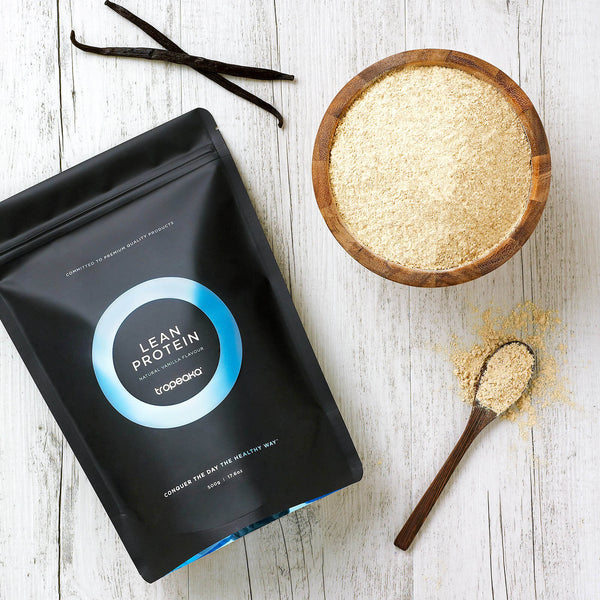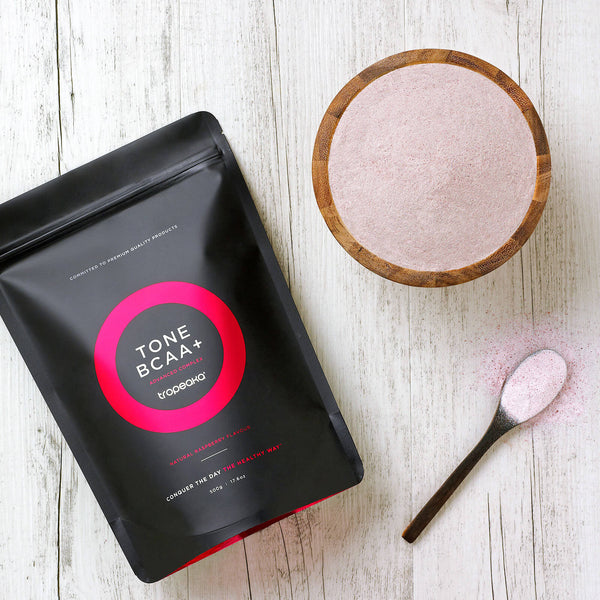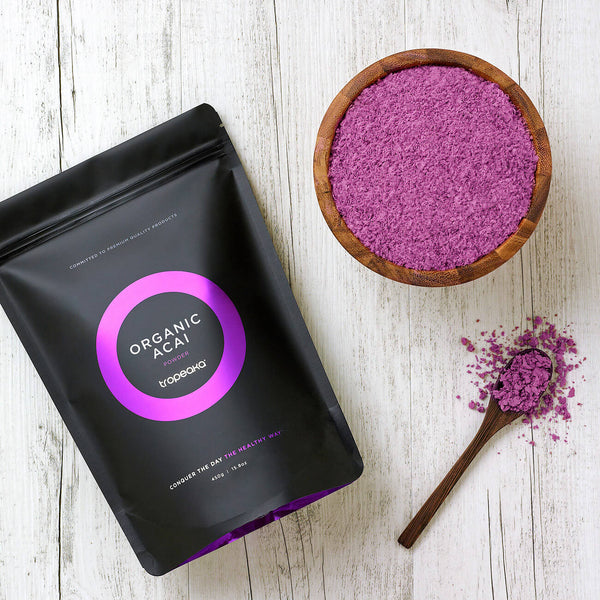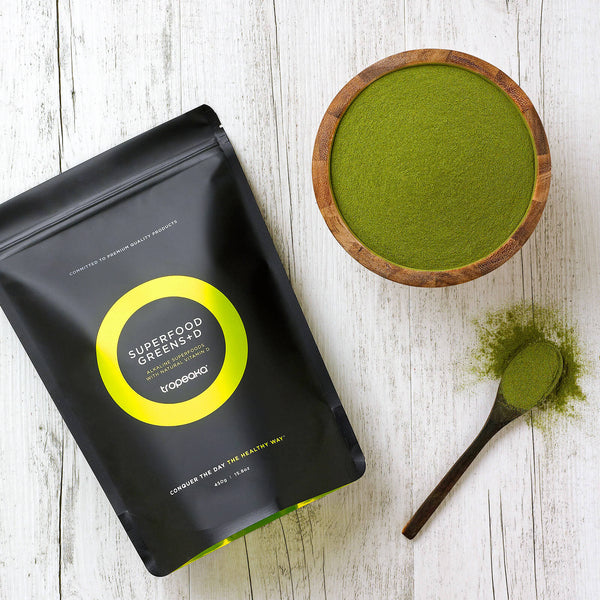Both BCAAs (branch-chained amino acids) and whey protein are popular dietary supplements among athletes and those who frequently exercise. This is because of the impact they have on one's exercise performance and recovery.
B
CAAs are branched-chain amino acids that can be found in food sources but are also sold in supplement form. Whey is a by-product of cheese making and contains the essential amino acids needed to build muscle tissue, however whey doesn’t come without its potential issues.
So, what is the difference between these two supplements? And which should you take?
What Are BCAAs?
Branched-chain amino acids are considered the building blocks of protein. They are also commonly found in foods that are a protein source, such as meats, dairy, eggs, and crucially… in legumes. These are essential amino acids, and we need to get them from our diet since our bodies don't produce them.

BCAAs include three essential amino acids: leucine, valine and isoleucine. They play a crucial role in protein synthesis and muscle repair. Leucine is the most important amino acid because it is in charge of protein synthesis and cell growth.
When we exercise, we create tiny micro-tears in our muscles, which lead to muscle breakdown. This is a normal part of exercise, but it's important to make sure your body recovers properly in order to prevent too much muscle loss.
BCAAs play a huge role in increasing the rate of muscle protein synthesis and preventing muscle breakdown. Muscle protein synthesis is when your body uses amino acids to build new muscle tissue. This helps to ensure you maintain lean muscle mass and decrease muscle loss.
If you take BCAA supplements before working out, this will promote protein synthesis and help you recover faster
How do BCAA supplements work?
BCAA supplements can be taken before or after exercise, depending on your preferences and the type of exercise you're doing.

Many people take branched-chain amino acid supplements before exercise to help with recovery by increasing muscle protein synthesis rates and preventing muscle protein breakdown. Protein synthesis occurs during rest periods between workouts. If you take BCAA supplements before working out, this will promote protein synthesis and help you recover faster. Endurance athletes sometimes choose to take extra BCAAs before a long workout in order to sustain energy over time, allowing them to workout longer and harder.
Others choose to take BCAAs after a workout to prevent muscle breakdown during recovery. When you consume BCAA's, these amino acids are reabsorbed back into your bloodstream. This prevents your muscles from breaking down and ensures you have enough amino acids for protein synthesis.
Anywhere from 4-20 grams of BCAAs is a safe amount for supplementation, so you can actually consume them both before and after a workout in order to get maximum benefits. Tropeaka Tone BCAA+ comes in two great flavors that are light and refreshing and can be mixed with just water for a refreshing beverage.
Why do people supplement with BCAAs?
People use BCAAs because they:
- Speed up muscle recovery time
- Reduce muscle mass breakdown
- Improve endurance and energy levels
- Prevent muscle fatigue
What is Whey?
First, let's make sure we understand protein and where it comes from
Whey is a type of protein supplement that is used when people need to increase their daily protein intake. Protein is so important for our bodies, and if you're working out daily, you may need to consume upwards of 100 grams of protein per day.
But not every source of protein is created equally. Before any supplements, you should get the majority of your protein from food. Common protein sources include animal proteins like meat, fish, and eggs; as well as plant proteins like nuts, beans, peas, and grains. If you can't get your recommended amount of protein from food, you may add protein supplements, which usually come in a powder form or as a meal replacement bar.
Protein powders can be animal-based, like whey, or plant-based, which is much better for you. If you take whey, like many people, you may notice that you experience bloating and sluggishness. Plant-protein is preferred because you can get a complete protein profile without all of the frustrating symptoms.
Why do people use protein powders in their diet?
Some people choose to use protein supplements to:
- Help increase lean body mass
- Stimulate muscle growth and promote fat loss
- Increase strength and endurance
- Helps to repair small tears in the muscles after strenuous workouts
- To promote weight loss
How do protein supplements work?
Protein supplements can be taken either before or after exercise as a protein shake, bar, or other meal replacement option to improve athletic performance. When consumed immediately following an intense workout (during the anabolic window), protein will help speed up muscle building (leading to increases in muscle gains) and reduce muscle soreness.
Whey protein is just one type of protein supplement on the market
Whey protein is a dairy product that is a by-product of cheese making. It's made from milk that has been separated into curds and whey. The whey is then concentrated and processed in order to make it suitable for human consumption. Some people choose to take a whey protein supplement in order to increase their daily protein intake. Others use whey protein supplements in the form of a shake as a meal replacement.
There are three main types of whey protein - whey protein concentrate, whey protein isolate, and hydrolyzed whey protein. The most common type of whey protein used today is isolated or concentrated casein protein.
Whey protein supplements contain all of the essential amino acids needed to build muscle tissue, as well as other nutrients, including vitamins B12, D2, E, and K, calcium, magnesium, phosphorus, zinc, potassium, sodium, iron, copper, manganese, iodine, selenium, and pantothenic acid.
It's important to consider a few things about whey protein. First, because it comes from a dairy product, people who have dairy sensitivities or lactose intolerance may have trouble digesting whey shakes or bars. People have also reported negative side effects such as stomach pains, cramps, nausea, and headaches when consuming whey powder. Casein protein, mentioned above, is seen by some people as a poor profile of protein.
A healthier alternative to whey protein powder is to consume a plant-based BCAA powder, which has all the same benefits as whey without the potential nasty side effects. It has a wider range of beneficial nutrients and is better for the environment than industrially processed whey. You can also supplement BCAAs to your regular diet to get the essential amino acids that our bodies don't produce.
What's The Difference Between BCAAs and Whey?
There are some key differences that separate whey and BCAAs.
Caloric Content
BCAAs are known to have a lower caloric content than whey protein, which is good for those looking to lose weight but maintain muscle mass.
Protein Synthesis
BCAAs are known to be able to stimulate protein synthesis better than whey protein. This means that when you consume them, more protein will be synthesized within your cells. This helps you build muscle and burn fat at the same time.
Incomplete vs. Complete Protein
Complete proteins contain all essential amino acids. Incomplete proteins only contain one or two of the essential amino acids. BCAAs are incomplete proteins, while whey is a complete protein.
Muscle Growth
BCAAs and whey can both be used for muscle building.
Post-Workout Recovery
Both BCAA and whey protein can be used for post-workout recovery. Whey protein is consumed immediately after a workout because it speeds up the rate at which your muscles recover. If you wait too long, you'll experience delayed onset muscle soreness (DOMS).

BCAAs are also incredibly effective for post-workout nutrition. They're often recommended for athletes who need to replenish glycogen stores and provide energy for the next day's activities.
Food Source
Whey is derived from milk, while BCAAs come from meat, fish, poultry, beans, nuts, seeds, soybeans, and eggs. BCAAs are more readily available in natural sources and can help fight fatigue when you exercise for long periods of time.
Harmful Side Effects
There are no known harmful side effects to consuming BCAAs, although they aren't recommended to take at night because they can block serotonin, which is needed to make melatonin, which helps you sleep.
Whey, on the other hand, has a number of potentially negative side effects and has been linked to stomach problems like bloating, as well as the potential for kidney and liver issues.
If you want to boost your overall health and fitness level, we suggest using BCAAs
Which one is right for me and my body?
If you want to boost your overall health and fitness level, we suggest using BCAAs. They're great for building muscle, burning fat, and helping you recover faster. They also are dairy-free, vegan-friendly, and have no known harmful side effects.

Add Tropeaka's BCAA powders to your fitness supplement arsenal. They are available in two great flavors - Passionfruit and Raspberry and are 100% plant-based power. These powders are naturally free from dairy, soy, and gluten and are great for those with sensitive stomachs or food allergies. Try using BCAAs in conjunction with our plant-based protein powders and see how it can improve your workout performance!





